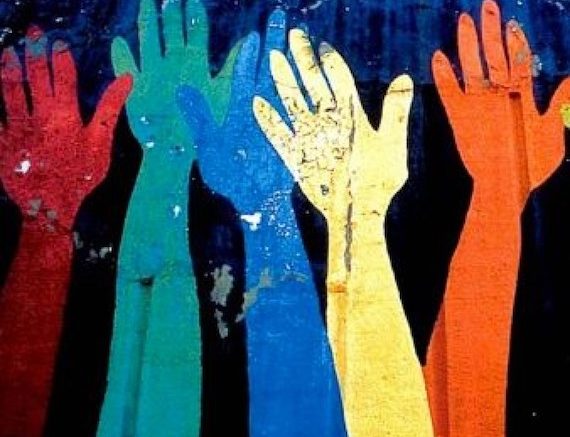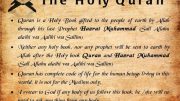Much has been written about conflicts involving religious communities across the world by journalists, academics and security ‘experts’. Although these conflicts have local roots, and owe to a host of causes, some locally-specific, others regional and even global, a common factor that links all of them are supremacist notions of the religious ‘self’ and, associated with these, negative images of the religious ‘other’ that are deeply-rooted in dominant understandings of religion. Efforts to resolve these conflicts must, some time or the other, necessarily address head-on the notion of the ‘other’ in religious thought, to critique understandings that brand all non-believers as ‘enemies’ and dismiss their faiths as of no worth at all. This critique needs to go hand-in-hand with efforts to promote more positive understandings of the religious ‘other’ and of other faith traditions and belief systems. In short, while most conflicts involving people of different religious communities are rooted in political and economic factors, they cannot be reduced entirely to them. The crucial role that negative, exclusivist, intolerant and supremacist understandings of religion and the religious ‘other’ play in creating and in fanning these conflicts cannot be denied.
That, in short, was what I learnt at a conference in Singapore that I recently participated in. Organised by the official Islamic Council of Singapore, the Majlis Ugama Islam Singapore (MUIS), the conference brought together several dozen academics and activists, Muslims as well as others, from across the world to deliberate on the vexed issue of Islam, Muslims and multiculturalism in our globalised world.
‘Islam is not simply about Muslims alone,’ stressed the well-known Oxford-based Islamic scholar Tariq Ramadan in his opening remarks. ‘Rather, it is about us and others working together constructing our common future. We need to dialogue—not just to talk to the other but also to listen to the other and to learn from the other.’ And, he went on, it was not enough just for Muslims and others to talk and listen to each other, but it was also necessary to be open to the possibility of changing and growing as a result of being in dialogic conversation with each other.
That inspiring message was echoed by Ustad Fatris Bakaram, Deputy Mufti of Singapore, who pointed out that multiculturalism was by no means a new experience for Muslims. Medina, where the Prophet and his companions shifted from Mecca, was a thriving multicultural and multi-religious society, as was Christian-ruled Abysinnia, where the Prophet instructed several of his companions to seek shelter, and where, for the first time, Muslims were able to practice their faith free from oppression. Critiquing the claims of radical Islamists (who are, of course, not known for any but the most stern views about non-Muslims and their religions), the Ustaz argued that the intention of the Prophet in migrating to Medina was not to set up ‘Islamic rule’ or Islamic political supremacy, as is often claimed. Rather, it was simply to seek a place where Muslims could practice their faith freely. It was thus wholly erroneous to argue, as Islamists do, the Ustaz explained, that only in an ‘Islamic state’, ruled according to shariah laws, and where Muslims were politically dominant, could Muslims willingly accept multiculturalism.
‘Muslims must learn to live with, and relate to, others amicably,’ the Ustaz insisted, arguing that unless this happened conflict, violent or otherwise, was inevitable. Muslims simply could not afford to continue to live in denial of the extremist tendencies that existed, he added, arguing that it was necessary for Muslims to critique and denounce radicalism and supremacism in the name of Islam that has now emerged as a global menace. ‘We cannot remain isolationist by seeking refuge in the comfort of our own communities,’ he argued. He lamented the fact that many Muslims, even in ‘progressive’ Singapore, hesitated to have close interaction with people of other faiths, with some even fearing that this was prohibited by Islam and that it was a threat to their identity as Muslims. A major issue that urgently cried out to be addressed in this regard, he said, was the widely-prevalent notion that Islam seeks or demands Islamic or Muslim domination over others. This powerful tool in the repertoire of self-styled Islamic radicals, he said, was a potent threat to multiculturalism.
The Ustaz was, likewise, critical of the marked tendency among Muslims to romanticize their past through which they implicitly sought to deny the very real problems in traditional Muslim thought and historical practice about the place and role of the religious ‘other’. In this regard, he insisted that several fiqh or juridical rules developed by the classical Islamic scholars in the early and medieval period with regard to non-Muslims urgently needed to be revised as not only were they not relevant to today’s context but they also conduced to conflictual relations with people of other faiths. The classical notion of non-Muslim territories or lands not ruled by the shariah as dar ul-harb or ‘land of war’, he opined, was, in today’s age, ‘unrealistic and archaic’. Arguing against those who might claim that his stance was tantamount to distorting the shariah, he pointed out that the notions of dar ul-islam and dar ul-harb find no mention at all in the Quran. Rather, he said, they were the product or ijtihad of later jurists, whose readings were based on the particular social and historical context in which they lived and to which they responded. To blindly accept their views, he opined, was sheer ‘ignorance’. The division of the world into dar ul-islam and dar ul-harb, so favoured by Islamists, he insisted, represented a binary thinking that had no basis in the Quran. It was also, he added, a major challenge to Muslims living as minorities, who were made to feel ‘guilty’ for living in what was termed dar ul-harb.
The Ustaz spoke about the need to understand Islamic injunctions by focusing on what are called ‘the intentions of the shariah’ (maqasid-e shariah), which would facilitate a much-need shift from a sternly literalist approach to legal matters. Accordingly, certain fiqh rules might need to change in changing contexts to uphold the underlying aims of the law. Critiquing scripturalist and legal literalism, he argued that numerous fiqh rules to do with relations with people of other faiths needed to be subjected to ijtihad or creative reasoning and re-interpretation in a contextually-appropriate manner in order to promote inter-community and inter-faith relations. This, he cautioned, was not a means to discard scripture, unlike what some Muslims might claim, but, rather, to re-read the scripture in today’s context in ‘an enlightened manner’. It was not tantamount to abandoning the shariah. Rather, it was a plea to realize the underlying aims of the shariah, which included justice, equality and friendly relations with others, in a contextually-sensitive manner.
While rethinking fiqh rules and received notions of other faiths and their adherents was a crucial task for Muslim scholars and activists to engage in so as to improve relations between Muslims and others, the Ustaz added that it was also crucial for Muslims to think beyond their own communities and work for the general good, collaborating together with people of other faiths in this task. In this way, he said, Muslims would learn to accept, even celebrate, religious diversity, to contribute to the welfare of the entire society (and not just of their own community), and to be, as he put it, ‘inclusive and adaptive, no matter in which environment they live in.’
Further dwelling on the importance of the task of critiquing supremacist notions of Islam and Muslim communal identity and of promoting alternate, more open interpretations of the religious ‘other’ in Islamic thought, Abdullah Saeed, Director of the National Centre for Excellence in Islamic Studies, Melbourne, Australia, pointed out that no religious tradition, Islam included, was a fixed, permanent and homogenous entity that had not undergone any transformation since its inception. Rather, he said, religious traditions are like living beings that emerge and grow over time and adapt to different contexts—although, of course, this is not how religious literalists and other ‘fundamentalists’ imagine them to be. In this regard, he added, in today’s context, where communities are in closer proximity than ever before, it was imperative for Muslims to develop new, and more positive, understandings of people of other faiths and their belief systems and of relations with them. A marked feature of today’s global context was the notion of common and equal citizenship, which is something entirely new. This, he said, necessitated the revision of several traditional Muslim understandings of the ‘other’, because these were rooted in a context of fundamental inequality between Muslims and other people. Mere tolerance of other faiths and their followers would no longer suffice, for it was not based on a positive value for engaging with the religious ‘other’. Rather, he argued, Muslims need to move beyond, to accept the ‘other’ and to champion religious pluralism based on common citizenship, while at the same time recognizing and respecting cultural differences. Yet, he said, multiculturalism has its clear limits, for, if stretched too far, it could lead to religious ghettoisation. It should be tempered, he suggested, with active engagement with people of other faiths for the common good.
Multiculturalism must not mean or lead to freezing communities into separate boxes or reifying religious traditions, argued Reuven Firestone, a trained Rabbi, who heads a centre for Jewish-Muslim Understanding in the USA. It must go beyond respecting cultural and religious differences to actively learning from and sharing with people of different faiths and cultures. This, he said, was precisely what the early Muslim Arabs did, because of which they were able to make marvelous strides in various fields of human activity. One of the major reasons for the later decline of Arab-Muslim civilization, he pointed out, was the shift to more exclusivist notions of the religious ‘other’ that did not conduce to learning from or interacting with them.
Lived Islam is a diverse discursive tradition, understood and expressed in diverse forms, and thus offers a variety of responses to, and interpretations of, other faiths and their adherents and relations with them, stressed the noted Indonesian scholar Azyumardi Azra, Professor at the Syarif Hidayatullah State Islamic University, Jakarta. These responses ranged from sternly exclusivist and hostile to open and inclusive, each of which presented itself as authoritatively and authentically ‘Islamic’. Critiquing exclusivist and hostile notions of the other in Muslim thought was a necessary task, Azra said, and there were tools available within the broader Islamic tradition, such as tajdid (renewal) and islah (reform) that could be used for this, although not in the strictly literalist manner as advocated by self-styled Salafis and the Wahhabis. This task needed to go along with attempts to ‘indigenise’ Islam to make it part of, and responsive to, local cultures instead of appearing to be a foreign, specifically Arab, cultural import. What he was probably hinting at was the tendency of Muslims to conflate Islam with Arabic language and culture. In this way, he opined, Muslims would be able to understand and live their faith in a manner suitable to the local cultural context that they shared with people of other religions and thus be culturally more integrated with them. Alongside this task of the ‘indigenisation’ of Islam in local cultures what was also required, Azra suggested, was for Muslim scholars to promote the Quranic concept of Muslims as the median or balanced community (ummatan wasatan), followers of the ‘middle path’. This ‘wasatiya Islam’, as Azra termed it, could serve as a powerful counter to Muslim or ‘Islamic’ exclusivism and supremacy.
The thrust of Tariq Ramadan’s presentation was a plea for rethinking fundamental categories in both secular as well as Muslim/Islamic thought. Dwelling on the latter, he argued that ‘reform’ (for which he used the terms islah and ihya) in Muslim/Islamic thought on the question of the religious ‘other’ is an indispensable necessity, although many might balk at this. While the Islamic texts could not be changed or ‘reformed’, what could, he said, were our understandings of them on certain matters. This is because religious understandings are a human product and so can change in response to changing social and historical contexts. Religious traditions, he noted, are a ‘moving reality’ and one’s understanding of one’s tradition is—or should be—also dynamic and open to being transformed with shifts in time and context. The ‘reform’ in Muslim thought with regard to the religious ‘other’ and the fact of religious pluralism that Ramadan suggested was, he said, not to adapt to standards set by others or to be accepted by them but, rather, to make the world a better place for all—for Muslims and for others. Hence, he clarified, what he was advocating was what he called ‘transformational reform’, which was distinct from ‘adaptational reform’. Arguing against those who see the shariah as a closed, fixed body of laws incapable of change and reform, he appealed for a fundamental reform in fiqh rules about people of other faiths and religious pluralism and a concomitant shift in focus in Islamic thought from the rules of fiqh to the basic ‘principles of fiqh’ (usul al-fiqh), through which more appropriate and positive fiqh rules could be formulated to promote inter-community dialogue and solidarity in accordance with today’s context of religious pluralism.
Echoing what several speakers before him had stressed, Ramadan called for the Islamic texts to be read in context and for what he called a new ‘Islamic applied ethics’ that would conduce to better relations between Muslims and others. Again, like numerous other speakers, he indicated the crucial need to critique and challenge certain classical ‘Islamic’ definitions and terms (most notably, the concept of the dars) that, he argued, were a product of a historical context that no longer exists and that militate against better relations with others. He also suggested that Muslims needed to broaden their imagination of what was ‘Islamic’: for instance, a just, egalitarian law could not be branded as ‘un-Islamic’ or ‘anti-shariah’ simply because it was formulated by a non-Muslim political authority. If it was indeed just and egalitarian, it must also be regarded as in accordance with the shariah or even as part of it.
A similar widening of approach and perspective was needed, Ramadan suggested, in Muslims’ understanding of the notion of the ummah. The Prophet Muhammad, he noted, included the Jews of Medina as part of the same ummah as the Muslims, thus suggesting that widely-held Muslim understandings of the notion were restrictive and narrow in a manner not warranted by the Prophet’s own practice. Likewise, he said, Muslims needed to broaden their horizons and be concerned not only for and about themselves but, indeed, for the whole of humankind. ‘Muslims will be respected by others if they contribute and work for not just themselves but for others as well, working for and with them, for siding with the poor, for struggling for freedom and justice for all,’ he very rightly remarked.
For me, the highlight of the conference was hearing the arrestingly charismatic Imam Feisal Abdul Rauf, head of the New York-based Cordoba Initiative, speak. The soft-spoken but extremely articulate Egyptian-born and Britain-educated Imam has been in the forefront of efforts to promote dialogue between people of different faiths, inspired by a truly universalistic—and, so, to me, powerfully attractive—understanding of religion. He began by pointing out that Muslims are today perceived as a ‘problem’ the world over. Owing to the actions of self-styled Islamists, Islam is now regarded by many as a security threat. This perception, he said, cannot be denied or wished away simply through apologetic exercises. Across the world, Muslim groups, using the vocabulary of Islam, have spearheaded violent political movements in the name of Islam. This is why, he said, many non-Muslims perceive Islam to be synonymous with violence and even terror. This undeniable fact, he went on, is a challenge to Muslims concerned about their faith, who must act to rescue it from terrorists who use it to give it a bad name.
The Imam debunked certain key myths that many Muslims, wedded to a narrow, communal understanding of Islam, zealously uphold. He pointed out that the Quran addresses itself not to Muslims as a communal group, but, rather to what it calls ‘believers’ or muminun. And this, he argued, is what the companions of the Prophet Muhammad saw themselves as. Based on his interpretation of certain key Quranic verses, the Imam pointed out that the category of muminun was not limited to those who call themselves by the Arabic term ‘Muslim’, and who generally construe the term as referring to a particular community. Rather, he persuasively argued, the muminun that the Quran talks about, for which any other suitable term could be used in other languages, included everyone, no matter what rituals he followed, what language he worshipped in, or whatever name he called himself by, who believed in the one God and in divine accountability after death and practiced good. This, he said, was the basic religion taught by all the prophets of God. Various prophets might have had their own methods of prayer and rituals, but these should be seen not as separate religions or as the bases of separate communities. Rather, they were more like different schools of thought or, in Arabic, mazhabs, of the same religion, or different sunnahs or paths. ‘The various prophets had different signatures, but they shared the same message’, he explained. All the prophets, the Quran says, were of the same status, and, critiquing Muslim claims to supremacy, he argued that nowhere does the Quran declare the Prophet Muhammad to have been the best among them or the most superior—contrary to what many Muslims contend. In actual fact, he pointed out, the Quran warns people not to make any distinction between the prophets. To imagine that the ‘believers’, in the Quranic sense, referred to a particular community that practiced a particular set of rituals in a particular language, as most Muslims do, was, the Imam argued, not at all in accordance with what the Quran says.
The universalistic understanding of religion and the notion of ‘believer’ that he argued the Quran actually preached (which is in marked contrast to how many of those who call themselves ‘Muslims’ understand them), the Imam suggested, was a powerful counter to the communalistic interpretations of Islam that have been, and still are, powerfully dominant and that inherently conduce to conflict. It was, he contended, also a firm basis to bring together the muminun in different communities, no matter what communal label they defined themselves with, to work together for a better world.
A host of other speakers addressed the two-day conference, which was easily one of the most engaging and enriching that I have attended so far.
—
Hatred does not cease by hatred, but only by love; this is the eternal rule.
—The Buddha





Be the first to comment on "Islam, Muslims and Multiculturalism: Conference Report"